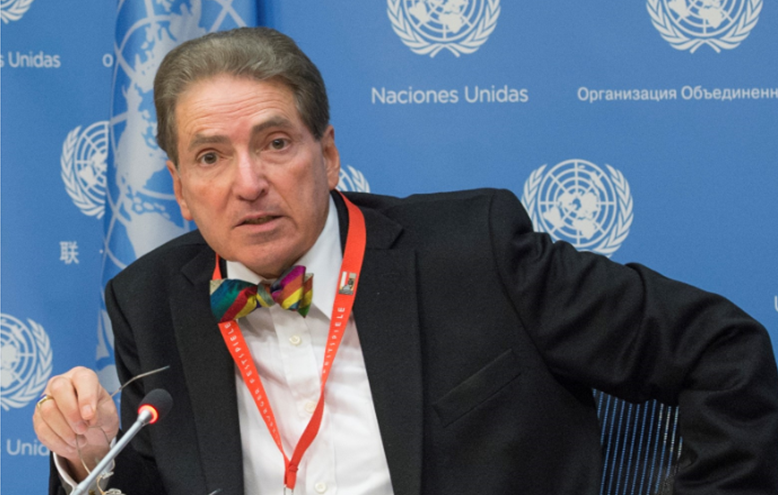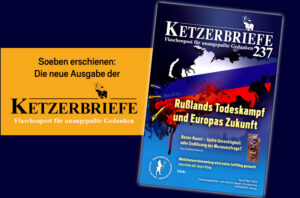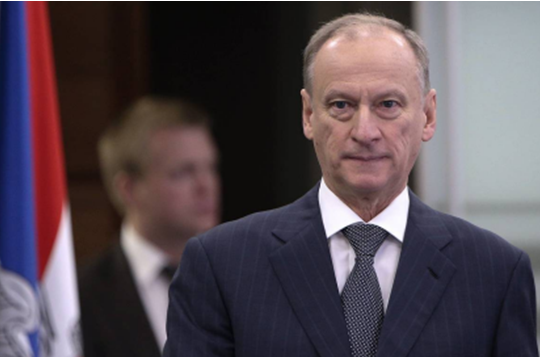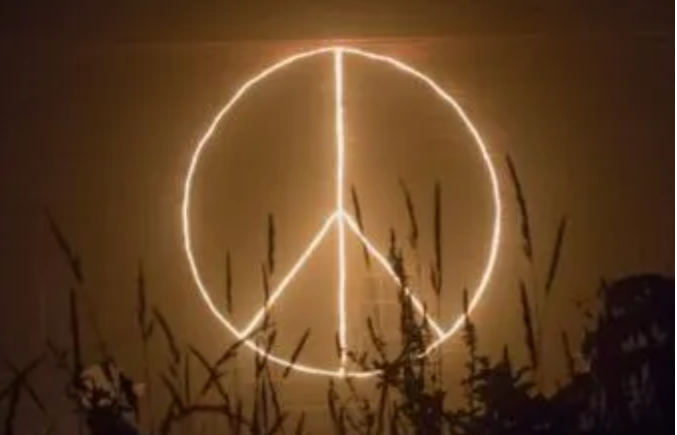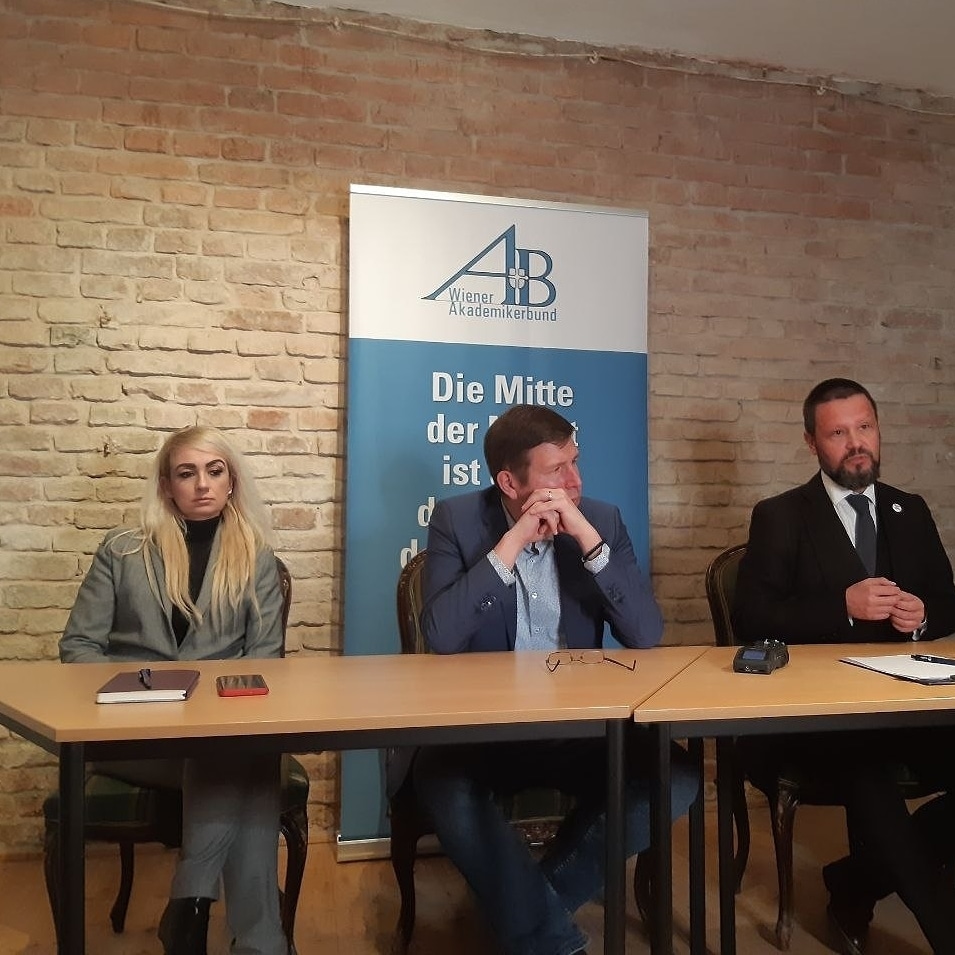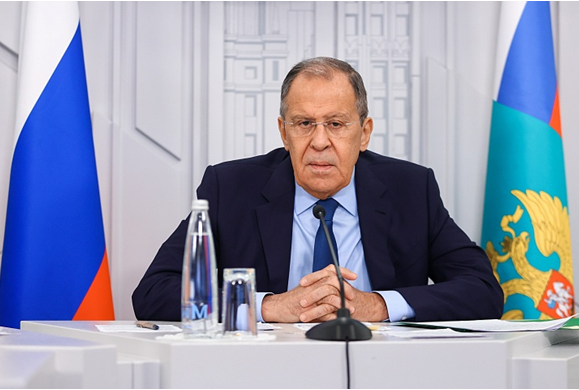Alfred de Zayas in conversation with Unser-Mitteleuropa
Unser-Mitteleuropa: The USA had staged their second Democracy 2023 Summit organized at the end of March 2023 for selected “democracies”. The program promised new approaches to strengthen democracy, human rights & new partnerships and stipulated: «The first session highlighted USAID and our partners’ efforts to surge resources to reformers during democratic openings».
How do you perceive objectives and goals of the U.S. for these Summits of Democracy and finally the question whether fake-democracies can meanwhile be bought?
Alfred de Zayas: Democracy means government by the people and for the people. This entails transparency and accountability on the part of government officials, regular consultation of the population on important matters, referenda in crucial issues. The US claims to have a system of “representative democracy”, but such a system could be considered democratic only if the representatives actually represent the population, if there is a correlation of the will of the people and the governmental policies that affect them.
According to the above definition the United States is not a democracy and most of the participants at the second “Democracy Summit” had fatal democratic deficits. The “summit” was intended as a public relations exercise, as a propagandistic extravaganza to divide the world into so-called “democracies” and the rest, which were excluded from participation, being unilaterally considered by the US as autocratic, that is “undemocratic”.
USAID and the National Endowment for Democracy are tools of the US government to impose its values and priorities on the rest of the world. Their work has nothing to do with democracy, and everything to do with destabilizing other governments in the expectation of achieving undemocratic regime change. All so-called “colour revolutions” were to a greater or lesser extent subversive upheavals, financed by Western governments and Western “NGO’s”. They are not home-grown, but foreign inspired and orchestrated. The so-called Euromaidan in 2014 was a classic example.
Unser-Mitteleuropa: The Chinese philosopher Laozi is quoted as saying, “What you talk about, you don’t have.” The word “democracy” enjoys inflationary use in Western echo chambers: Why is it that self-proclaimed and supposed model democracies succumb to an almost pathological urge to tout their model of democracy around the clock, over and above everything else and in all directions and seemingly irreplaceable?
Alfred de Zayas: Propaganda works on the basis of repetition, indoctrination, brainwashing, as we know from Orwell’s 1984 and Aldous Huxley’s dystopian novel Brave New World. The United Kingdom and the United States have enormous experience in fake news, fake history and fake law. The Western propaganda machine is formidable, and many times more efficient than that of Goebbels.
Unser-Mitteleuropa: Aristotle characterized the rule of the privileged few as “oligarchy”.
As early as the previous century, political sociologists warned against absolute party rule wrapped in a fake-democracy. Such theory claims, that over time party-system-democracies tend to turn into “party oligarchies,” which attach highest importance to the self-preservation of their own power.
U.S. political scientists Martin Gilens of Princeton University and Benjamin Page of Northwestern University have classified the United States as a so-called “civil oligarchy” in which the super-rich and plutocrats determine the most important issues for the U.S. population. In 2015, former U.S. President Jimmy Carter declared that the U.S. resembled an “oligarchy of unlimited political bribery.”
How do you judge said American conditions?
Alfred de Zayas: Carter is right in his characterization of the US as an oligarchy. The system has been completely hijacked. As I wrote in one of my reports to the UN General Assembly, those who are elected do not govern, and those who do govern are not elected. Jokingly, I also wrote that “The United States two-party system is only twice as democratic as the Chinese one-party system.”
I went on to explain that whether one votes Republican of Democrat, you get more of the same. Both Republicans and Democrats are war-mongers, both are subservient to the military-industrial complex, both are for Wall Street over Main Street, both are for Israel and against the Palestinians, both serve the super-rich and do not care a hoot about the masses of Americans who live in abject poverty and have no chances of pulling themselves out of poverty.
For this reason, I referred to a statement attributed to Kurt Tucholsky and to Emma Goldman, “If elections could change anything, they would be abolished.” In other words, elections are like carnivals, and many Americans have the illusion that they actually mean something. This, of course, can and should be changed. First would be to legislated a limit to campaign contributions, because at present elections are effectively bought.
Unser-Mitteleuropa: What about the state of democracy in Europe?
Alfred de Zayas: Yet, what is reasonable and rational is not what necessarily happens in politics. One problem is that in matters of foreign policy no European country behaves like a democracy. Unlike Switzerland that has a tradition of referenda for almost everything, including the Swiss entry into the UN in 2002 by virtue of a referendum (prior referenda failed), there is no “people power” whatever Europe.
Notwithstanding millions of European citizens protesting the run-up to the Iraq war, the US and the “coalition of the willing” bombarded the hell out of the Iraqi people and imposed undemocratic regime change. Notwithstanding the opposition of many in Europe, the US sanctions regime is being implemented. Indeed, most Europeans leave everything in the hands of their governments, assuming that the governments have democratic legitimacy by virtue of periodic elections. Yet, on important matters such as the prevention of war, those who govern act directly against the interest of their constituencies. A referendum in December 2021 whether NATO should have negotiated with Russia on the question of a European security architecture would certainly have favoured negotiation over confrontation.
I think that the so-called European elites are in a very real sense traitors to their own countries – giving aid and comfort to the United States, a foreign entity, at the expense of the interests of their own populations. They are actually worse than Vidkun Quisling during the second world war. In Norway’s case, the Nazis had militarily occupied the country. Today, the US economically and politically occupies Europe.
Unser-Mitteleuropa: You mentioned Switzerland in praise. This country does not have a constitutional court: Does this give rise to the danger that the highest organs of the state can break the constitution with impunity or act against the will of the people, but can always assume that they will get away with it?
Alfred de Zayas: Yes, the danger does exist. Some laws, of course, and their application can be challenged before the Tribunal Federal in Lausanne.
Unser-Mitteleuropa: Flawed separation of powers might turn-out counter-productive: How can a true separation of powers function after the legislative, executive and judicial branches of government have been exclusively occupied by one and the same political party organizations across all branches of government? Has this misdemeanour already rendered the original goals of the necessary separation of powers meaningless?
Alfred de Zayas: The “separation of powers” as foreseen by Montesquieu has never been fully implemented. In the United States it is woefully deficient. Some political scientists and other scholars have pointed this out in numerous books, but the power of Big Brother and the power of the mainstream media is so strong, that there is little or no chance of changing this situation in the short term.
Unser-Mitteleuropa: Beside clearly visible party oligarchies, a powerful and highly invisible power factor is still hiding above nation states: The globalists or one-world-protagonists with their historical expertise of long-standing global monopolies and capital accumulation in the hands of the few in line with a plutocracy. What could be done against them and their handlers, who tend to sell-out national interest like e.g. experienced during the CoV crises?
Alfred de Zayas: I endeavoured to expose these undemocratic forces in my 14 reports to the UN General Assembly and Human Rights Council. I have further developed these ideas in my book “Building a Just World Order” and in my 25 Principles of International Order:
- Principle: Peace
- Principle: UN Charter takes priority
- Principle: UN Resolutions of UN Security Council are legally binding
- Principle: International law & human rights to be applied in good faith
- Principle: International humanitarian law & human rights are mutually reinforcing
- Principle: States must respect the spirit of law
- Principle: General Principals of law
- Principle: International is dynamic
- Principle: Humanity and dignity are source of human rights
- Principle: Self-determination of peoples
- Principle: Territorial integrity is confined to sphere of states
- Principle: Statehood depends on population, territory, control & external relations
- Principle: The state may choose its political, economic, social and cultural system
- Principle: Peoples possess sovereignty over their natural resources
- Principle: Peoples have right to their homeland, culture and identity
- Principle: States shall refrain from force against political integrity of other States
- Principle: States to settle disputes by peaceful means
- Principle: Principle of non-intervention is part of customary international law
- Principle: States must refrain from interfering in internals of other states
- Principle: States have a duty to protect the natural environment & heritage
- Principle: State sovereignty is superior to commercial and other agreements
- Principle: Everyone has the right to international solidarity as human right
- Principle: Right to know and to access information is a component of democracy
- Principle: Violations of international law by states do not create new laws
- Principle: Violations of international law require remedies
Unser-Mitteleuropa: After the fall of the Iron Curtain under direction of the high-finance global monetary policy has increasingly put focus on casino capitalism, derivative speculations and risky investment banking supported by the money press to the detriment of the real economy.
In the light of the war against the Russian Federation as well as increasing tensions with China, how do you see the possibility for a fundamental global economic reform to de-dollarize the world economy, which might possibly come from the BRICS countries?
Alfred de Zayas: De-dollarization is on the way, and it is important that China, Brazil, India, South Africa, Mexico lead the campaign for de-dollarization. The dollar has been weaponized and is no longer a safe currency. No one in his right mind would put his money in dollars or deposit his assets in a US bank.
When we talk about assets, let us talk about abandoning Europe’s irrational dependence on the so-called US nuclear shield, its new addiction to the hyper-expensive and ecologically hyper-unfriendly US liquified natural gas.
This does not mean de-coupling from the US entirely, but Europe must think about loosening the transatlantic link and gradually de-dollarizing.
Unser-Mitteleuropa: How to counter the Atlantic regime of sanctions best?
Alfred de Zayas: For Europe’s economy it would be important to ditch US sanctions against Russia and other countries and to protect European businessmen against the threat of penalties by the US Department of the Treasury – an outrage that must be resisted through the reassertion of the prohibition of the extraterritorial application of domestic laws, which violates the sovereignty of other states.
Europe must implement the international law obligation of every state to exercise diplomatic protection on behalf of its citizens, including its businessmen conducting legitimate business and trade abroad.
Recently I read an optimistic analysis by CGTN that France and Germany could gingerly move in the direction of greater European autonomy and European self-interest. I am not as optimistic as the Chinese observer, because I see the US and Europe irretrievably caught in an irrational, self-righteous and obsolete cold war mentality — with everything that that entails.
Unser-Mitteleuropa: What role do the Atlantic media cartels play with regard to global conflicts and as significantly responsible drivers of undesirable developments for the West?
Alfred de Zayas: These media conglomerates are in the service of Washington and Brussels. They should be broken down on the basis of antitrust and anti- monopoly legislation.
If we want to save democracy, then we must ensure that there is access to all necessary information and a plurality of views and narratives. That is not the case today, when the news services like Reuters and AP are biased and suppress information that does not support the mainstream views. Similarly the NYTimes, Washington Post, Times, BBC, Le Monde, El Pais, FAZ, even the NZZ.
Part of the problem lies in brainwashing, propaganda, and public relations. Notwithstanding all the evidence readily available about the horrendous crimes committed by the US in Vietnam, Afghanistan, Iraq, Guantanamo, etc. the US still enjoys a relatively good reputation in Europe (but not in the Global South) and even pretends to be the “leader” of the so-called “free world.”
This really is the triumph of daily indoctrination by the mainstream media, social media, television, Hollywood.
We have been swimming in an ocean of lies for decades. We are surrounded by fake news, fake history, fake law, fake diplomacy – which has brought us to fake freedom and fake democracy. The level of manipulation of public opinion can only be called “Orwellian”. The mainstream media, schools, peer pressure, groupthink — all have led us to the dystopia we now live in. Aldous Huxley’s novel Brave new world – is equally relevant. Worth rereading.
It is time for mature persons to make an effort to consult all available sources of information and evaluate different perspectives on the facts. This requires consulting not only CNN, BBC and the NY Times, but also RT, Sputnik, CGTN, Asia Times, Xinhua, etc. It entails reading and supporting alternative media including Counterpunch, Consortium News, Democracy Now, the Real News Network, Truthout, the Intercept, Push Back and others: We can do it!
Unser-Mitteleuropa: How do you assess the significance of the sovereign nation-state in view of the attempts of transnational forces to enforce their one-world domination, if necessary by help of warlike means, and to transform the remaining more or less still sovereign states into compliant protectorates?
Alfred de Zayas: The survival of our culture and identity – the survival of Christian civilization depends on a reaffirmation of “people`s power” and self-determination. Hungary under Victor Orban is a good example.
Will the Europeans eventually understand that the US is not its friend and that essentially it never was? The US intervention in the first and second World Wars was driven purely by US economic interests and had little to do with the welfare of the Europeans. Similarly, the Marshall Plan was for the US, not for the Europeans, who continue being naively pro-American instead of defending their sovereignty as Charles de Gaulle once did in France.
Unfortunately for everybody, de Gaulle’s successors have betrayed France and Europe.
Unser-Mitteleuropa: Recent developments and state excesses, such as the reckless application of emergency law only when called upon by supranational authorities, as it happened under CoV, expose the existence of fake-sovereignty-states in that their governments shamefully betray the interests of their own citizens. What reform steps do you recommend in order to prevent such abuse of authority more effectively in the future or, if necessary, to prevent it from the outset?
Alfred de Zayas: Difficult question. First of all, we have to have the right diagnosis before we can talk about an action plan, before we can venture a prognosis.
One can legitimately ask whether and when the European politicians will finally understand that an alliance with the US represents a liability, not an asset, that the United States, not Russia or China, constitute the greatest danger for the survival of the planet, as the Global Majority already knows. The recent Pentagon leaks confirm that the US systematically spies on European leaders and European industry, that the US shamelessly uses the Europeans as pawns in its geopolitical agenda. The contempt that some US government officials have for Europe is reflected in the recorded statement of Victoria Nuland in 2014 in Kiev when she told the American Ambassador in Ukraine — “Fuck the EU”.
Europe’s euphoria about the United States is a form of unrequited love – and it will not be reciprocated anytime soon. On the contrary. The only role that the US has for Europe is that of a lowly vassal.
Unser-Mitteleuropa: Who are the instigators behind the conflict of Ukraine?
Alfred de Zayas: Washington’s effort at full spectrum dominance led the world to the Georgia war of 2008 and to the Ukraine coup d’état of 2014. NATO expansion to the very frontiers of Russia, its arming of Ukraine and training of its army provoked the Russian invasion of Ukraine in February 2022. Historians will not be able to maintain the US narrative of an “unprovoked” war.
Notwithstanding conventional “wisdom” and repetition, it is not impossible that one day Europeans will realize that NATO gradually morphed from a defensive alliance to a criminal organization within the meaning of articles 9 and 10 of the Statute of the International Military Tribunal at Nuremberg.
It is obvious that since the dismantlement of the Soviet Union and the Warsaw Pact, there is no justification for NATO other than an attempt at self-perpetuation, and at usurping the functions of the UN Security Council.
Countries like Finland and Sweden should be more circumspect about their wishes for security – sometimes people end up getting what they wished and it turns out to be contrary to their interests. Finland will yet grow to regret joining this criminal organization because it thereby becomes complicit in the aggressions and war crimes committed by NATO members in Yugoslavia, Afghanistan, Iraq, Libya and Syria over the past 30 years.
Unser-Mitteleuropa: How to you assess the Taiwan issue and Europe`s position?
Alfred de Zayas: Europe must stay clear of the Taiwan conflict, because any direct involvement would be contrary to Europe’s economic and political interests. Moreover, whether Europe wants it or not, the Chinese Belt and Road Initiative is a success with 150 countries buying into it. Europe would be isolating itself it it considers departing from the One-China-principle.
Unser-Mitteleuropa: The great problems of our time have urged you to write a great trilogy of books: This coming June, the third and final volume – The Human Rights Industry – will be released:
- Countering Mainstream Narratives
Fake News, Fake Law and Fake Freedom - Building a Just World Order
- The Human Rights Industry.
Which reform steps from your collected bundles of measures would have to be implemented first to pave the way, thus all subsequent measures would fall on fertile ground and fully meet future daily requirements?
Alfred de Zayas: First of all, it is necessary to ensure that the world does not end in an apocalypse. The war in Ukraine might develop into a nuclear war. If we can’t secure peace, everything else would be beside the point.
It will be crucial to win the “information war” and cope with it. We need more pluralism, more whistle-blowers – there are enough people who know exactly how Nord-Stream was blown-up.
Whistle-blowers should be considered heroes of our time. A Charter of Rights for Whistle-blowers is needed thus people had the courage to speak the truth and bring corruption in government and business to the public. Stop giving money to bogus organizations like Human Rights Watch and Amnesty International. Give money only to real human rights organizations.
Unser-Mitteleuropa: Professor de Zayas, we would like to thank for the interview!
The interview was conducted by Unser-Mitteleuropa
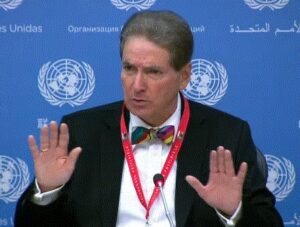 About the Author: Alfred de Zayas is Professor of Law at the Geneva School of Diplomacy and served as UN Independent Expert on International Order from 2012 – 2018. He is the author of numerous books, including his latest trilogy released by Clarity Press, 2021.
About the Author: Alfred de Zayas is Professor of Law at the Geneva School of Diplomacy and served as UN Independent Expert on International Order from 2012 – 2018. He is the author of numerous books, including his latest trilogy released by Clarity Press, 2021.
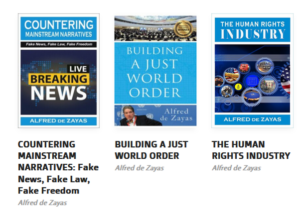
Website of Clarity Press: Here
Website with details for the long awaited volume III: The Human Rights Industry to be released June 2023: Hier

Bitte unterstützen Sie unseren Kampf für Freiheit und Bürgerrechte.
Für jede Spende (PayPal oder Banküberweisung) ab € 10.- erhalten Sie als Dankeschön auf Wunsch ein Dutzend Aufkleber „CORONA-DIKTATUR? NEIN DANKE“ portofrei und gratis! Details hier.

Bitte unterstützen Sie unseren Kampf für Freiheit und Bürgerrechte.
Für jede Spende (PayPal oder Banküberweisung) ab € 10.- erhalten Sie als Dankeschön auf Wunsch ein Dutzend Aufkleber „CORONA-DIKTATUR? NEIN DANKE“ portofrei und gratis! Details hier.

